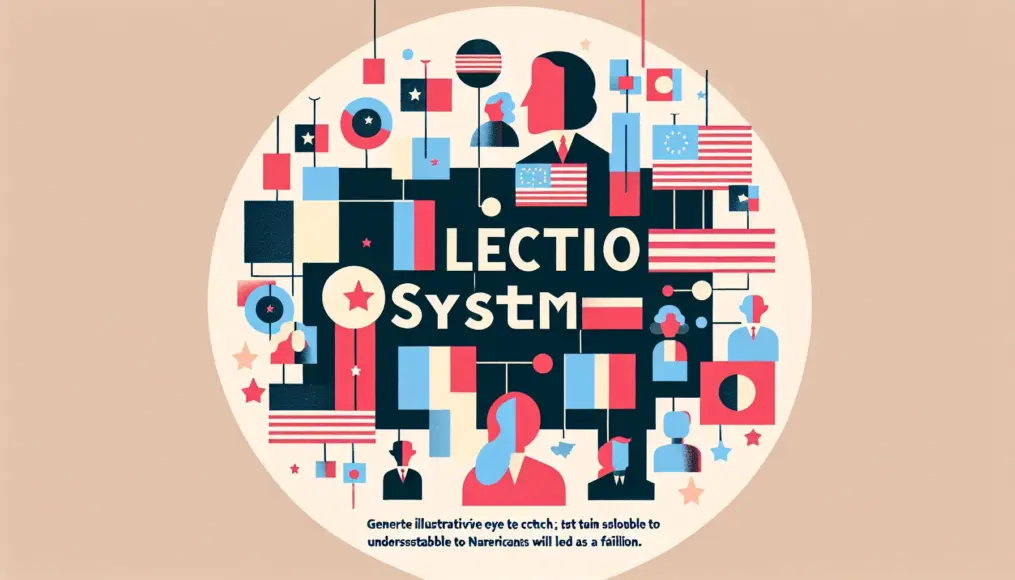Elections and political activities are deeply embedded in our society. Decisions and policies in politics are made by representatives elected through these elections, making the role of campaigning incredibly significant. Through elections, citizens voice their opinions and engage in the political process, paving the way for a better society.
However, campaigning encompasses various aspects, and we can learn a great deal from historical contexts as well as examples of both successes and failures. In this article, we will delve into the fundamentals of campaigning, its importance, and explore how political activities have influenced society through past cases.
- Grasp the purpose and significance of electoral campaigns
- Learn from the successes and failures of Japan’s election history
- Discover the outcomes and impacts of civic movements
Understanding Election Campaigns and Their Importance
Election campaigns play a crucial role in promoting civic engagement within the political landscape. Elections are a way for citizens to express their will and choose their representatives, and this process involves various movements and activities. Campaigning is not just about candidates or parties promoting their policies to gain voter support; understanding its significance and purpose is vital for us as citizens who wish to participate in politics.
What Is an Election?
Elections are the foundation of democracy, serving as a means for citizens to engage directly or indirectly in politics. Typically, elections take place at the municipal, state, and national levels, allowing the selection of legislative members and local leaders. Through this process, citizens can reflect their opinions and aspirations, making elections immensely significant.
While the electoral system varies from country to country, the common thread is that elections aggregate diverse opinions and help determine the direction of political action. Thus, elections are more than mere voting; they are essential activities that give shape to the will of the people.
- Elections are the cornerstone of democracy
- Conducted widely from local municipalities to national levels
- An important process for reflecting citizens’ opinions
The Purpose and Significance of Election Campaigns
The primary goal of an election campaign is to garner voter support. Candidates and parties spread their policies and visions using various strategies to win elections. This may include public speeches, posters, and leveraging social media. Campaigning is not just a means to gather votes; it also serves as a vital opportunity to engage citizens’ interest in politics.
Moreover, election campaigns foster civic participation, enhancing political awareness and stimulating discussion. In this way, campaigns are a crucial element of democracy, providing a platform for citizens to express their opinions through political activities.
- Election campaigns aim to gain voter support
- A crucial opportunity to raise political awareness
- Promotes civic participation and invigorates discussions
Learning from History: The Evolution of Election Campaigns
Election campaigns have evolved significantly over time. By looking back at the history of past campaigns, we can gain a deeper understanding of modern political activities. Japan’s electoral history is filled with various examples of both successes and failures, offering numerous lessons to be learned. In this section, we will explore Japan’s electoral history, examining how past campaigns have developed and how they continue to influence contemporary political activities.
Japan’s Electoral History
Japan’s electoral history traces its roots back to the post-war democratization period, gradually maturing over the years. The implementation of the House of Representatives Election Law in 1946 granted voting rights to ordinary citizens and established a framework for the electoral system. From this point onward, election campaigns were recognized as vital activities encouraging civic participation.
Moreover, changes in the electoral system have significantly impacted Japan’s election campaigns. For instance, the introduction of the single-member district system in 1994 drastically altered the methods and strategies of campaigning. Candidates were required to adopt more personalized approaches, broadening the scope of electioneering. Thus, Japan’s electoral history serves as an important framework illustrating the evolution of political activities.
- Japan’s electoral history begins after WWII
- Voting rights were expanded to ordinary citizens in 1946
- The introduction of the single-member district system in 1994 impacted election campaigns
Examples of Successes and Failures in Past Campaigns
Within the history of election campaigns, we can find both success stories and cautionary tales. A notable success was the rise of the New Progressive Party during the 1996 general election. In this election, young candidates brought fresh ideas to the political scene, capturing the attention of voters. Their campaign heightened expectations for political change, resulting in a significant number of votes.
Conversely, there are also examples of failure. For instance, a candidate who focused too heavily on a specific policy may have neglected other important issues, leading to a loss of support from voters. Such instances highlight the necessity of diverse approaches in election campaigning. By learning from past successes and failures, we can devise more effective strategies for today’s political activities.


- The rise of the New Progressive Party in 1996 serves as a success story
- A campaign overly focused on a specific policy can lead to failure
- The importance of learning from past examples to inform strategies
Types of Political Activities and Their Impact
Political activities come in many forms, each making a distinct impact on society. From election campaigns to grassroots movements, these activities play a crucial role in shaping public opinion and determining the direction of politics. In this section, we will explore the main types of political activities, with a particular focus on the outcomes and influence of grassroots movements.
Main Forms of Political Activities
Political activities encompass a wide range of forms beyond just election campaigns. Examples include party activities, lobbying, and initiatives led by civic organizations. Party activities involve supporting candidates during elections and promoting policies. On the other hand, lobbying is conducted by specific interest groups aiming to influence policy decisions, directly engaging with lawmakers and bureaucrats.
Grassroots movements organized by civic groups are also significant. These activities empower citizens to address local issues, encompassing a variety of topics such as environmental concerns and human rights. Each of these political activities contributes to the health of democracy by providing different perspectives and fostering social engagement.
- Political activities come in diverse forms
- Includes party activities and lobbying
- Civic movements contribute to solving local issues
Grassroots Movements and Their Outcomes
Grassroots movements are initiatives where ordinary citizens take action to express their will. Throughout history, there have been numerous successful examples. For instance, movements focused on environmental protection have prompted policy changes and contributed to the realization of a sustainable society. By raising their voices, citizens can wield significant influence over governments and corporations.
Moreover, grassroots movements do not solely aim for policy changes; they also strengthen community bonds. As citizens work towards common goals, social connections are enhanced, and awareness of political participation increases. In this way, grassroots movements serve as a vital means for aggregating individual opinions to build a better society.

If you found this article interesting, check out our piece on “What is the Essence of Citizen Activism? Exploring the Power to Change Society.” Dive deeper into the impact and success stories of civic activism and learn how citizens can drive social change.
- Grassroots movements reflect the will of ordinary citizens
- There are successful examples in environmental protection
- They play a role in strengthening community bonds
Understanding the Motivations Behind Political Participation
Political participation goes beyond merely casting a vote; it is an essential process where individual thoughts and feelings are reflected. What drives people to engage in elections and political activities? A variety of psychological factors play a crucial role in this decision-making process. In this section, we will explore the motivations for political participation and consider how election campaigns influence people’s psychology.
What Motivates People to Get Involved in Politics?
There are many reasons why individuals choose to engage in politics. First and foremost, personal values and beliefs significantly impact this decision. As awareness of social and environmental issues rises, the desire to express one’s opinions grows stronger. Additionally, the influence of peers and community cannot be overlooked. When those around us show an interest in politics, it often encourages us to participate as well.
Moreover, a sense of self-efficacy plays a key role in motivating political participation. When individuals believe that their opinions can make a difference in society, they are more inclined to participate in elections and political activities. Thus, political participation can be seen as a complex process shaped by both internal factors and external influences.
- Personal values and beliefs influence political participation
- Peer influence enhances the desire to engage
- Self-efficacy serves as a motivation for participation
The Psychological Impact of Election Campaigns
Election campaigns significantly affect people’s psychology. The efforts made by candidates and political parties can heighten interest in elections and stimulate the desire to participate. Particularly, emotional messages and compelling narratives resonate with voters, making it easier for candidates to gain support.
Additionally, as election campaigns unfold, they spread information about political matters, often sparking interest among those who were previously indifferent. This rise in political engagement contributes to an overall increase in political awareness. However, it’s important to note that excessive negative campaigning can lead to distrust in politics, so careful consideration is required when choosing strategies.

If you found this article interesting, you might also want to check out this piece that delves deeper into the background and changes in election activities: “Exploring the Behind-the-Scenes of Election Campaigns: Traditions and Changes in Japanese Politics.” This will provide you with a deeper understanding of how election campaigns influence political participation.
- Campaigns stimulate the desire to participate
- Emotional messaging is effective
- Caution against excessive negative campaigning
Conclusion
In this article, we’ve taken a deep dive into election campaigns and political activities. Election campaigns serve as a vital means for us, the citizens, to participate in politics, playing a crucial role in upholding the foundations of democracy. By considering historical contexts and psychological factors, we’ve gained insights into why we engage in politics and the influence we can wield. Additionally, we cannot overlook the significant outcomes of grassroots movements.
Political participation reflects individual values and concerns for society. As we look ahead to upcoming elections, the awareness of each voter becomes paramount. By holding steadfast to our opinions and actively participating in election campaigns and political activities, we can work towards building a better society.
- Election campaigns are a crucial means of civic participation.
- Historical contexts and psychological factors influence political engagement.
- The impact of grassroots movements on local communities is substantial.
We encourage you to value your opinions and get involved in politics. Your voice has the power to change the future. We would also love to hear your thoughts and feedback about this article in the comments!


Comment